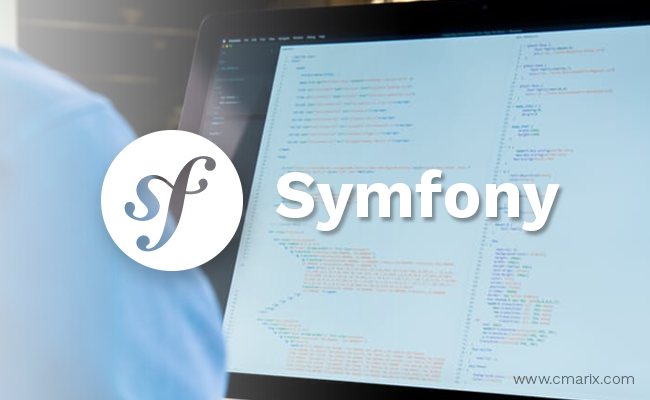When it comes to web development at a fast pace without compromising on the user experience and excellence in user interface, most developers opt for PHP frameworks. These days two frameworks, namely, Laravel and Symfony grabbed the attention of many web developers due to a range of benefits ranging from speed of development, performance, learning curve, flexibility, scalability and several other factors.
There are many PHP developers who are still confused about making a choice between these two PHP frameworks for their web development project. Considering the fact that both are equipped with a rich reserve of sophisticated capabilities, making such a choice is a bit difficult. This is precisely the reason why we are going to make an in-depth comparison of these two popular frameworks for web development.
If you are going to hire PHP developer for your next web development project, knowing the intricacies of these two frameworks and their differences is important. Let’s start with the very basics and explain each of these frameworks and their respective benefits separately before going to compare their similarities and differences.
Symfony, A Framework Predominantly Created For Enterprise Web Applications
Ever since it was released in 2005, it rose as the most mature and reliable PHP framework for building enterprise web apps. There are many reasons that make Symfony development such a big choice for so many enterprise apps to this day. Here below we are going to explain the pros and cons of the Symfony framework in detail.
Pros
Symfony has a lot of pro capabilities and features that gave it such wide acclamation among enterprise web app developers. Let us briefly mention the pros of Symfony for web application development.
- Flexibility: Symfony offers unmatched flexibility thanks to the bundles and components it comes with. Bundles just work as plugins allowing the developers to implement any feature they require. Components are about fulfilling routine development tasks with pre-built code lines.
- Commercial support: Symfony is one of those PHP frameworks that enjoy full commercial support. The creator of Symfony, SensioLabs continuously adds value and works to make Symfony a better framework over time.
- Proven trustworthiness: Symfony has actively been relied upon by a wide array of most reputed CMS platforms including Drupal, Magento, eZ Publish and several others. All of them actively use the Symfony components for their website.
- Unmatched maintenance and scope of testing: By using bundles and by doing away with any stringent dependency, Symfony framework allows better maintenance and scope of testing the web apps.
- Regular updates: Symfony gets regular support and updates to keep the framework fresh, compatible and performing for a variety of web development needs.
- Great community support: With more than 2000 developers as contributors and with several reputed enterprise websites using it actively, Symfony enjoys unmatched community support compared to many other PHP frameworks in the market.
- Ready to help documentation: Compared to many other PHP frameworks Symfony comes with very detailed, clean and properly structured documentation to help the developers in their development efforts.
Cons
As no PHP framework is fully perfect and every one of them at least comes with one or two shortcomings, Symfony is no different in that respect. It has its share of cons as well. Let us mention some prominent cons of Symfony for web app development.
- Performance issues: Just because Symfony relies on good elements of other technologies instead of the organic and inbuilt ones, it often feels limiting for performance-savvy applications that need faster real-time loading capability.
- Higher time to market: Since Symfony relies heavily on design patterns prebuilt with code lines for multiple uses, the need of testing and additional support actually slows down the development process and enhance the time to launch and market the app.
- Steep learning curve: For new developers, Symfony offers a really steep learning curve compared to many other PHP frameworks used for building similar complex and robust web applications.
Laravel
Laravel, the second option among the two choices in our present discussion equally deserves to be seen with all the positive light. It is also regarded as one of the leading PHP frameworks popular among the vast majority of web development services because of its simplicity, performance and fast-paced development. Laravel is the PHP framework which is principally known for reduced development time with a simple coding approach.
Here are the basic and elementary features of the Laravel PHP framework.
- Packages of small pre-built functions or bundles
- Autoloading classes
- Unit testing
- Composite view
- Eloquent ORM
- Application Logic
- The IoC container
- Restful Controllers
- Reverse Routing
Now that we have come to know about the basic and elementary characteristics of Laravel, let us have a look at the pros and cons of using Laravel for web app development.
Pros of Laravel
- It allows using latest PHP features: Laravel stays updated with the latest PHP features compared to many other PHP frameworks. This gives the framework sharpness in respect of shorter and developer-friendly syntax, anonymous features and functions and newest interface attributes.
- Good documentation: Very proper, detailed and well-articulated documentation of Laravel remains as the constant help for developers.
- Integrated mail services: Laravel also allows apps integrating with popular and most commonly used email services through API. This helps the business and ecommerce applications to send commercial promotions from time to time.
- Faster time to market: Thanks to faster integrations the developers can reduce the cycle of development considerable and launch the product faster and sooner.
Cons of Laravel
Apart from the array of pros or benefits that Laravel developer enjoys, the framework also comes with an array of shortcomings. Let us have a look at these areas that work as the pulling factor for the framework.
- No support for payment feature: This is a small negative of Laravel that can put web apps to challenges if they are going to manage the payment process themselves. Integrating other payment gateways will never be an issue and can be done easily as with any other PHP framework.
- The rolling out of versions is not continuous: Laravel updates are not continuous and so by trying to update the Laravel 4 to Laravel 5 you can actually break the code and do harm to the application.
- The output is not consistent: Many components in the framework comes with design faults leading to inconsistent output at different junctures.
- Need to go through complex documentation: The documentation of the Laravel framework is quite heavy and one needs to study meticulously before starting to build an app with the framework.
- Not enough rich to deliver mobile app experience: Laravel is not particularly optimized for mobile apps. Many pages of a Laravel-built web app can be heavier for faster loading in mobile. This is why developers often prefer to use JSON API for the backend.
Comparing The Two Frameworks For Web Development
As of now, we have explained the respective features, pros and cons of these two frameworks. Now, it is time to compare these two frameworks for specific web development needs. By comparing various aspects of these two frameworks we will clarify the similarities and differences of them for web app development.
Using PHP
Both frameworks use PHP as their core programming language but there are serious differences in respect to the PHP version they use. These differences are equally important for a Laravel and Symfony developer. While Symfony relies on the universal code of PHP, Laravel uses traits and modules of PHP enduring smaller and more understandable syntax. This gives Laravel a slight edge over Symfony in terms of simplicity in code.
SEE ALSO: Laravel vs CodeIgniter
Accessibility of database
For approaching databases, the two frameworks have serious differences. While Symfony uses Doctrine, Laravel uses Eloquent. This difference particularly becomes relevant for migration and access to data. Let’s explain the differences here below.
- Migration: While with the Doctrine of Symfony you can migrate automatically, the Eloquent of Laravel requires manual migration. But with the latter, the developer doesn’t need to define the field.
- Data Access: Just because Symfony uses Doctrine, the repositories need to be created every time for accessing data. But with the Eloquent of Laravel, you only need to use SQL functions and this requires only basic knowledge about SQL.
Coding
Symfony comes with a lot of reusable code and allows optimum modularity. This gives Symfony a slight edge over Laravel. On another level, both frameworks are built with MVC architecture which is helpful for building a web application. Both frameworks use good template engines, though the template engine used by Laravel works much better for reusing code than the one used for Symfony.
Loading speed
There are serious differences between these two frameworks in terms of website loading speed that any web development company should take into account. While both come with the ability to cache views, the difference in loading speed stands out. While Laravel takes around 60 milliseconds to load a page, the same page takes around 250 milliseconds with Symfony.
Are you considering which PHP framework suits your web development needs best? Do you need expert advice for finding the best PHP framework for web app development? Feel free to drop us your query and we are going to respond at the earliest.







